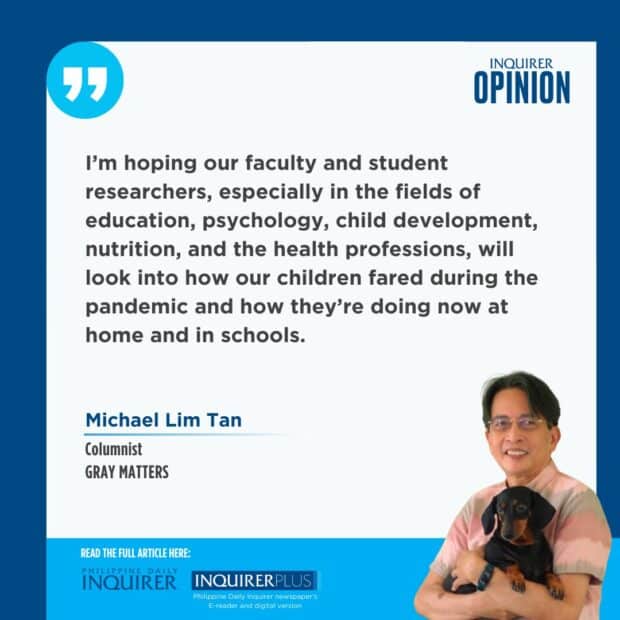Pandemic Class of 2024

We had a stupendous general commencement exercise last Sunday, July 28, almost as good as the Paris Olympics opening (smile).
I digress. I am sure the commencement was memorable, made more so because our guest speaker was former senator Francis “Kiko” Pangilinan, who took off from the University of the Philippines (UP) Fighting Maroons’ 36-year journey (1986-2022) to regain the UAAP basketball championship, literally crawling out from the bottom of the heap. The good senator’s point is that our retrieval of the championship involved making the impossible possible.
At UP though, we’ve tried extra hard not to rest on our laurels; in private I tell my friends in the varsity teams, don’t make us wait another 36 years for the next victory.
Senator Kiko had a somewhat more short-term proposal, outside of UP, and this is to make sure to vote wisely in the next two presidential elections (2028 and 2031) so that in the next decade or so, the Philippines would have made the impossibles (plural intended) possible.
I did want to make a modest but more urgent proposal here and this is to start untangling the damage brought about by the pandemic. This year’s graduating class is the pandemic class, most of them having entered university in 2020, a few months after the pandemic erupted. I will never forget meeting one of my undergraduate classes in 2022 for a botanical field trip for anthropology majors and being taken aback when I saw the students embracing each other and dancing.
I teased them, “It’s like you haven’t seen each other for a long time.”
They corrected me, “We’ve never actually met, until today!”
Many of us faculty have noticed the difference in the pandemic batch, so eager to socialize and yet cautious as well, almost awkward and clumsy at times with handling friendships and relationships. They’re more sensitive, too, and it’s understandable, the pandemic bringing about so many potentially adverse triggers, from feelings of isolation to COVID infections, especially when entire families are involved.
It was a trying time as well for us, as faculty, never sure if the students were actually listening during online classes or even if they were, if they were processing the lectures.
There was much less dynamism, of students asking questions, of agreeing and disagreeing. I will say though that the pandemic batch, especially as they moved to upper years, were quick to take up certain issues from class discussions and to look up more information on the internet, sharing them immediately with the class.
Students and teachers had to improvise. I found myself worried if they were coping, emotionally, and had my bodyguard dachshund popping up on the screen to greet the students. With my veterinary students in Los Baños, I’d see the videos turning on so the students could show off their dogs and cats attending the class.
I will deal with the question of inflation in honor graduates; we only had 212 this year compared to 305 in 2023! But yes, I did wonder if we might have pampered our pandemic class, shielding them from a world that is much more challenging than our online world.
I am sure that most of our college graduates will pick up quickly on the social skills, on emotional IQ, even as new challenges, an increasingly vicious social media, and more mis- and disinformation emerging in and out of the internet.
What I do worry about are reports from other countries on the problems of kids who were just starting preschool and early grades when the pandemic struck. The education journals, and even some medical journals, have raised flags about developmental delays, especially with speech and cognition, and with social skills that will impact school learning.
We might forget that Filipino kids were sequestered for more than two years and that it was worse with low-income communities, where overzealous barangay officials had hefty fines for parents who allowed their children outside of their homes. (The sequestration was really bad in urban areas, and almost never really enforced in rural communities. And of course, with rich families, there was no real lockdown for the kids after the first few months, free to run around in their subdivisions and be transported from one place to another to visit relatives and friends.)
I’m hoping our faculty and student researchers, especially in the fields of education, psychology, child development, nutrition, and the health professions, will look into how our children fared during the pandemic and how they’re doing now at home and in schools.
Armed with the data—which should include stories and not just dull statistics—we can better tackle the challenge of making the impossible possible.
mtan@inquirer.com.ph





















